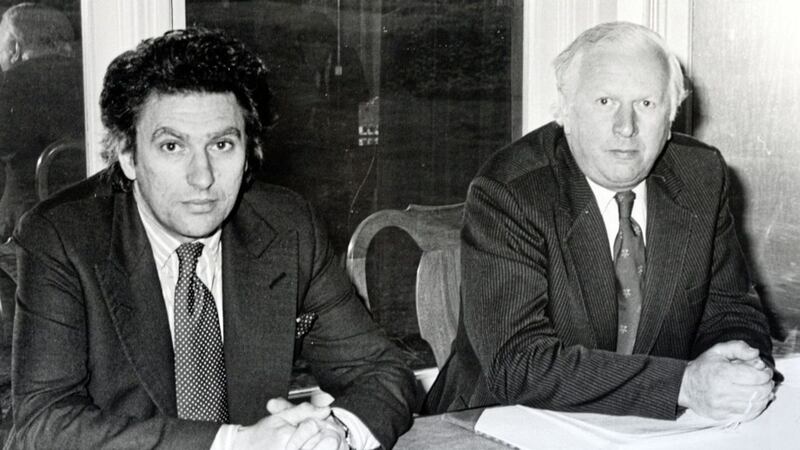THE Earl of Gowrie served a short but eventful term as a junior minister in Northern Ireland, overseeing both the end of the hunger strikes and the decriminalisation of homosexuality.
He was appointed to the Northern Ireland Office as prisons minister in 1981 as at a time when events at the Maze/Long Kesh were headline news around the world.
Born in Dublin, the Conservative peer was unusual, if not unique, in having requested the posting to Ireland.
Records show that in September that year, after the deaths of 10 men, he held a series of sensitive meetings with relatives of remaining hunger strikers as part of the process of ending the protest.
Expressing sympathy for their "heartbreaking predicament", he assured them that while the decision to come off hunger strike had to be taken by the men themselves, ministers "would try to be helpful" thereafter.
The hunger strike was duly called off days later in October 1981 and Secretary of State Jim Prior announced changes in the prison regime.
Gowrie was said to have had quiet admiration for what he saw the dying men's misguided courage and his empathy, and interest in Irish affairs, was helpful in resolving the crisis.
The following year he was in the spotlight again when it was his duty to introduce legislation decriminalising homosexual acts in Northern Ireland, a full 15 years after the law was changed in England and Wales.
The UK government had been forced to act after a ruling in the European Court of Human Rights - 40 years ago yesterday - that the law breached the right to respect for private life, in a case brought by Jeff Dudgeon.
A previous attempt to change the law had failed in the face of opposition from religious and political groups, not least Ian Paisley's 'Save Ulster from Sodomy' campaign.
A former private secretary to Gowrie recalled how Paisley described him as “the little green Lord”, only partly referring to his green overcoat, and how the firebrand preacher was told at the end of one meeting: “You don’t understand, Dr Paisley. We’re not proposing to make it compulsory.”
He also highlighted the junior minister's influential role the following year in Jim Prior's ill-fated proposals for "rolling devolution", in which a newly-elected assembly would gradually be given powers.
"Gowrie wrote a distinctive chapter proposing something along the lines of an explicit deal between the two main communities, an idea that came to underlie the Good Friday agreement of 15 years later," he told The Guardian.
Alexander Patrick Greysteil Hore-Ruthven - known as Grey Gowrie - was born in Dublin in 1939 and, after his father's death in an SAS raid in Libya in the Second World War, spent much of his childhood in Co Kildare and Dunlewy, Co Donegal.
He would later sell the family's Castlemartin estate in Kildare to businessman Anthony O’Reilly and another home, Sandymount, to Rolling Stone Ronnie Wood.
The young earl studied at Eton and Oxford University and taught English literature in Harvard and University College London, as well as publishing a book of poetry in 1972 and becoming a prominent art dealer.
Having taken the Tory whip in the House of Lords, he served under Margaret Thatcher in the Department of Employment before being sent to Northern Ireland.
After Thatcher's re-election in 1983 he was made arts minister, a job for which he was well-qualified, but later declined an offer of the education ministry.
He instead left politics to become chairman of Sotheby’s auction house, claiming to some derision that he could not live in central London on a ministerial salary.
He also chaired the Arts Council in England and the Booker jury which gave the prize to Roddy Doyle for Paddy Clarke Ha Ha Ha in 1993.
In 2000 Lord Gowrie spent five months in hospital waiting for a heart transplant, a period which prompted a return to writing poetry.
He died aged 81 on September 24.



